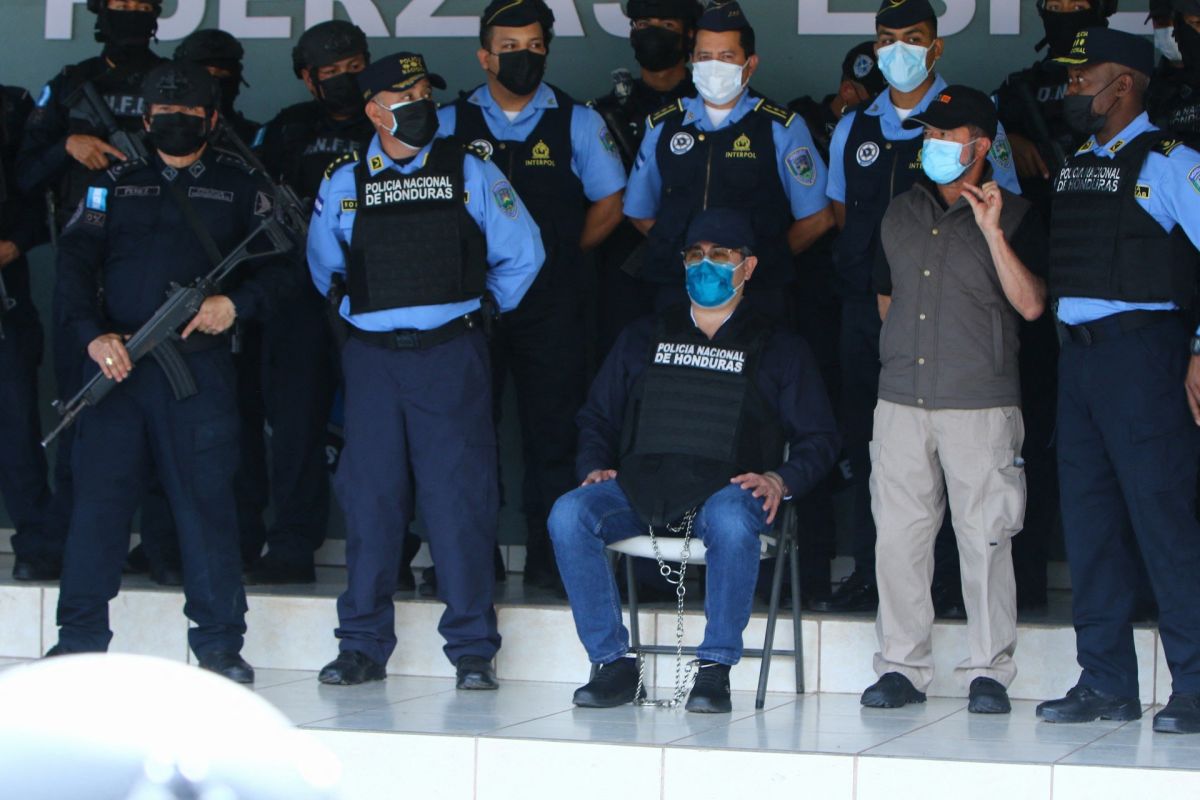The former president of Honduras, Juan Orlando Hernández, pointed out in the United States as possible links with organized crime, was chained by the Police of his country.
The images of the arrest circulated on social networks and they were even shared by current officials of President Xiomara Castro, such as Vice President Salvador Nasralla.
“This awaits the accomplices of Juan Orlando Hernández,” the president wrote on his Twitter account, where he shares the images that the former Honduran president was chained by his hands and feet.
This week, the United States Department of Justice asked the Honduran government for Hernández’s extradition, after on February 7, the government of President Joe Biden announced that on July 1, 2021 put him on a “black list” for corruption and links to organized crime.
The Alianza Americas organization –a transnational immigration group– celebrated the judicial process and the request for the extradition of the former Honduran president.
“It is a welcome event that indicates a commitment by the Department Justice Department to strengthen the administration of justice in Honduras and the rule of law. This action should guide the future foreign policy of the US towards Honduras and the rest of Central America”, considered Óscar Chacón, executive director of the group.
“This turn of events is a reminder of how US foreign policy has failed in Central America, allowing the entrenched corruption and drug violence that is driving migration. It was the US government who, in 2009, supported the coup d’état that broke out the democratic order of Honduras. This decision eventually led to the election of Juan Orlando Hernández. To make matters worse, the United States government legitimized the illegal re-election of this same individual in 2017, despite a call from the international observers to declare such an election fraudulent and invalid”, said Chacón.
The president of the Board of Directors of Alianza Americas, Mirtha Colón, originally from Honduras, also highlighted the positive impact of the persecution of Hernández and how this can contribute to reestablishing democracy in her country.
“The consolidation of the Democratic governance in Honduras, along with much-needed economic and social reforms, will go a long way toward eventually transforming this nation into a place where the majority of citizens can be secure and prosperous.”
Patricia Montes, executive director of the Present Center, also celebrated the extradition process of the former Honduran president.
“We applaud the US government for finally admitting and taking action on what it has known for a long time : that former dictator Juan Orlando Hernández was and is a corrupt and drug-trafficking threat to democracy,” he said.
Hernández’s case could be taken to the Southern District Court of New York, where his brother Juan Antonio “Tony” was sentenced to life in prison for drug trafficking. The name of Juan Orlando came up during that trial and that of Geovanny Fuentes Ramirez, also sentenced for drug trafficking.
In some of the testimonies it was even pointed out that the former Honduran president received bribes from Joaquín “El Chapo” Guzmán Loera, who was the leader of the Sinaloa Cartel and faces life imprisonment in Colorado.
In July 2020, Jon Piechowski, Assistant Undersecretary of the Office of Western Hemisphere Affairs of the State Department, acknowledged in an interview with this newspaper the difficulties of relating then with the Government of Honduras, led by Hernández, in the midst of efforts to address the migration crisis and its relationship with organized crime.
